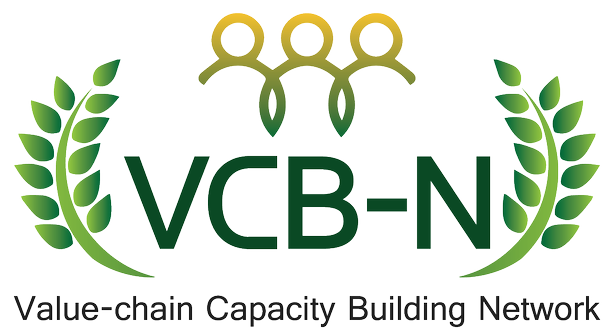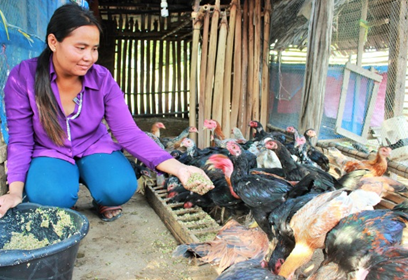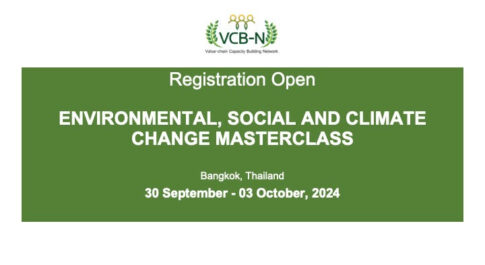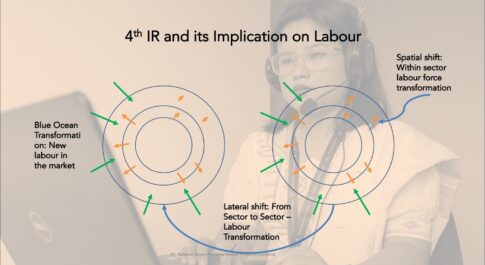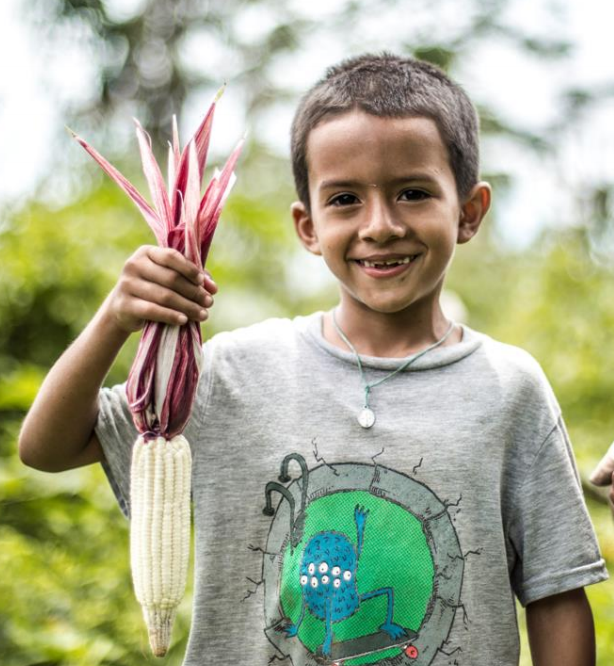
Good practice
Developing Potentials for Local Economic Development: NESTLED project in Lao PDR
The following good practice is conducted by a VCB-N member: Enterprise and Development Consultants Co.,ltd from Laos. The case study was selected and presented in Mekong Knowledge and Learning Fair (IFAD).
(For presentation in the event, please click here)
Background
Nam Thuen 2 Power Company (NTPC is the joint venture between the Lao Government and the private shareholders. NTPC built and operates the Num Theun 2 Hydroelectric Project. It commits and is dedicated to running a world class hydropower facility and to improving the living condition of people in the areas around the Project. Currently, NTPC is in its eighth year of operation.
For fulfilling its obligations abided by the Concession Agreement (CA), the project is implementing a comprehensive environment and social program to mitigate the environmental and social impacts of the dam. The project is required to meet highest international standards, in terms of social and environmental safeguard. NTPC implemented a resettlement program for 1,310 households starting in 2004, including infrastructure and livelihood packages for resettlers. The Resettlement Implementation Period was due to close in 2015 but was extended until the end of 2017. To ensure the successful closing of the RIP and to ensure that “resettlers livelihood are materially improved on a sustainable basis, the project developed a comprehensive action plan. This action plan comprises of seven pillars, among which Off-Farm is one. The Off-Farm Pillar aims to increase the income and diversity of the income-generating activities in which the resettlers engage.
Therefore, EDC was contracted to conduct Off-Farm Research and Analysis. EDC designed this research project and called it – Nakai Enterprise, Skills and Tourism for Local Economic Development (NESTLED). The main objective is to: start, facilitate and set in-place the necessary LED ingredients for stimulating economic development of the Nakai District by promoting expanded opportunities for enterprises, employment, value chain, tourism and training initiatives within twelve months.
Innovations / Good Practices
The study entails highly participatory methods. It carried out several thorough steps. Villagers/resettlers were consulted several rounds. The steps included:
- Village walk: the study team conducted informal but structured interviews with key informants like local entrepreneurs, entrepreneurs-to-be (potential target groups), potential employers, value chain players, potential tourism investors and training providers
- The interviews: the study team further conducted interviews with relevant development projects, district authorities, private businesses, service providers such as technical and vocational schools in Nakai, Thakhek, Vientiane province and Vientiane capital.
- Focus Group Discussion and Screening: The teams visited selected hamlets. They met with specific groups of villagers such as business owners, former skill trainees, youth group for a more detailed interviews and focused group discussion (FGD).
- Village consultation meetings: 4 village consultation meetings were conducted in 4 locations among 16 hamlets. These meetings provide opportunities to villagers to learn more details about identified business opportunities and choose activities that they like.
- Start-up weekend initiatives: the NTPC organized start up weekends for villagers, especially young generation to boost entrepreneurial spirits and encourage them to start businesses and open them up to market potentials. The organizer invited some businesses from Vientiane and near by districts to join this event and so the villagers expose to potential markets.
- Based on the initial idea of the NTPC, the study found potential to establish a resource center to be a learning and incubation center.
- The NTPC also organized Job Fair event, during which potential employers as well as businesses were invited to join. Villagers have chances to meet with potential employers and potential buyers.
Impact
The study found numbers of opportunities for enterprise, value chain development and tourism development. Those include: 1) Semi-Processed Natural Crickets; 2) Natural earthworms; 3) Vermicomposting; 4) Wooden Educational Toys; 5) Wild Almonds; 6) Bamboo Handicrafts; 7) Cotton Weaving; 8) Dried fish; 9) Fermented Fish; 10) GAP Certified Vegetables; 11) Lodge in Nakai Tai; 12) Thalang Boat Tours to Nakai NPA and the Reservoir; 13) Lodge in Sobpaen; 14) Fish BBQ Restaurant in Thalang; and 15) A combination of Bed & Breakfast in Thalang, Expand and Improve Guesthouses in Thalang, Weaving in Sobhia and Nam Nien.
Among these identified opportunities, some ideas were further developed. Numbers of villagers started and expended vemicomposting activity. A trader was invited from Vientiane and she is willing to buy the products from villagers. Dried and fermented fish has good market potentials. The NTPC continued to support villagers-processors with techniques, packaging, supporting them to attend trade fair and linking them with buyers. GAP certified vegetable also found good market. It becomes rather promising activity for numbers of households. Eco-tourism development ideas triggered current businesses to improve their accommodation, restaurant and tour services. It seems that they are now able to attract more tourists to the area.
Facilitating Factors / Challenges
The enabling factors include:
- Strong support from the NTPC and stakeholders, including district authority and line offices at district level
- Active young district staff who have good local knowledge and established relationship with villagers
- Young generation of resettlers are now more educated and eager to learn.
Challenges:
- Small market on the plateau itself
- Very limited entrepreneurial experiences and attitude of villagers
Lessons Learned
- Back ward support – bring in private sector as an entry point to the Value Chain / Local Economic Development
Recommendations
With the process agreed with NTPC, the EDC recommended the following way forward.
- To stimulate and promote employment and skills training, Nakai can: (a) attract employment agents and (b) conduct informal short and formal long-term skills courses.
- Make Nakai’s Off-Farm Resource Center happen. It could be the main business support service unit for the 16 hamlets.
- Install the Market Access and Value Chain Facilitators in the hamlets.
You may want to read
